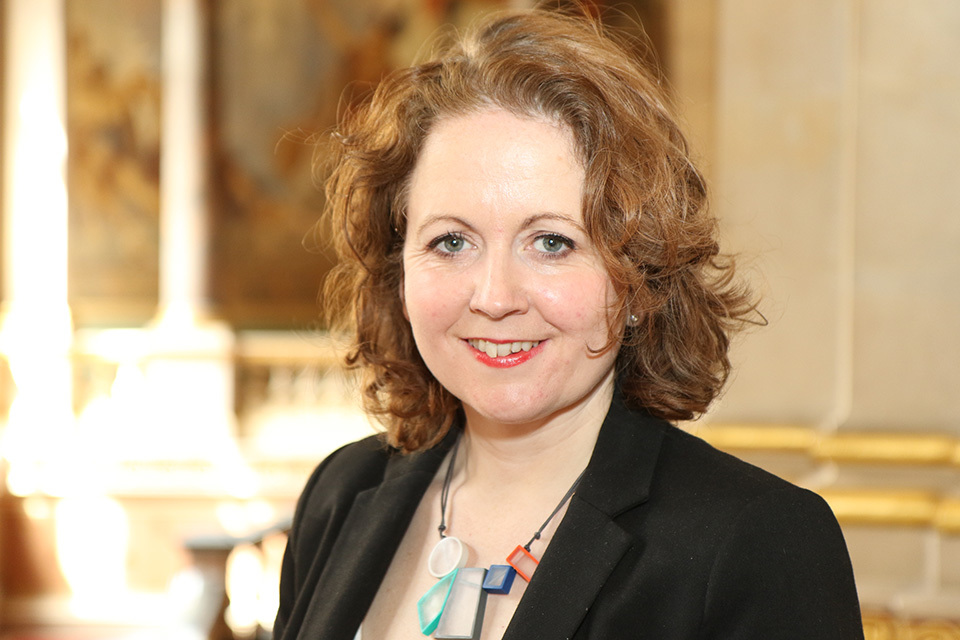Address during a visit by UK Parliamentary delegation to enhance the capabilities of the Fijian Parliament
Speaking notes of British High Commissioner to Fiji Melanie Hopkin's address on the occasion of a visit by a UK Parliamentary delegation to enhance the capabilities of the Fijian Parliament.

Madam Speaker, Distinguished Members of Parliament of the Republic of Fiji and the UK, Members of the Diplomatic Corps, Members of Civil Society, Honoured Guests. I am delighted to host Parliamentary delegation from the United Kingdom, led by Rt Hon Baroness Taylor of Bolton. Not only does the delegation represent the upper and lower chambers and different political parties, it also represents very different parts of the United Kingdom.
The UK is proud of its long-standing parliamentary tradition and lively debate. During Queen Victoria’s reign, the fierce rivalry between political rivals Gladstone and Disraeli was legendary. It is still known today as clash of the titans.
Said Disraeli: “If Gladstone fell into the Thames, that would be a misfortune, and if anybody pulled him out, that, I suppose, would be a calamity.”
But these were more than just political insults, these were profound differences in how to approach fundamental issues such as land, trade and public sector reform, for which parliament rightly was the appropriate chamber for rigorous debate.
Fast forward to 2016, this doesn’t mean that the role of parliament is static. Indeed, as many of you will have seen, there is currently lively debate in the UK about the role of Parliamentary scrutiny following the UK’s decision to leave the European Union.
Tonight, here at the Gordon House, I want to concentrate on three messages:
Firstly, in an age where we both have numerous international partnerships, the parliamentary relationship between Commonwealth countries such as the UK, and Fiji, is unique. Whilst there is no “one size fits all”, the UK and Fiji have a foundation of common values. We are able to share ideas and best practice drawn both the UK’s own national parliamentary experience and the diversity of practice across the 53 countries that form the Commonwealth of Nations. Partnerships based on shared values are the only meaningful platform for moving forward – on this note, I would like to pay tribute to the UNDP Fiji Parliament Support Project – with co-funding from the EU, Australia, NZ and Japan.
Secondly, in the age of ever more complex systems of government, the role of standing committees becomes more, not less important. In the UK, politicians are used to incredibly high levels of media and public scrutiny, including through social media. Scrutiny by a parliamentary committee is an important moment for any UK Minister or Business Leader. We should be honest that for the government it is not always comfortable to be on the receiving end of such scrutiny, but we know that this makes for more effective public policy and ultimately greater stability for the country concerned.
Thirdly, this visit is funded by the Commonwealth Parliamentary Association UK and by the Foreign and Commonwealth Office’s Magna Carta Fund. This fund was launched in 2014 – born of the realisation that the UK needed to more to help build institutions and strengthen democracy. I am delighted that this is one of two projects on which the UK will be working in Fiji. I hope there will be more.
Looking ahead, we pay tribute to Parliament’s work in building up many of its core functions in such a short space of time. We understand that at times there are steps back, as well as steps forward. And there is much to do. Madam Speaker, I feel tired just watching you. As you take forward your workplan in areas such as enabling effective cross-party scrutiny, bringing parliamentary debate to the wider public and providing effective avenues for civil society, the UK will be ready to offer its voice of support.